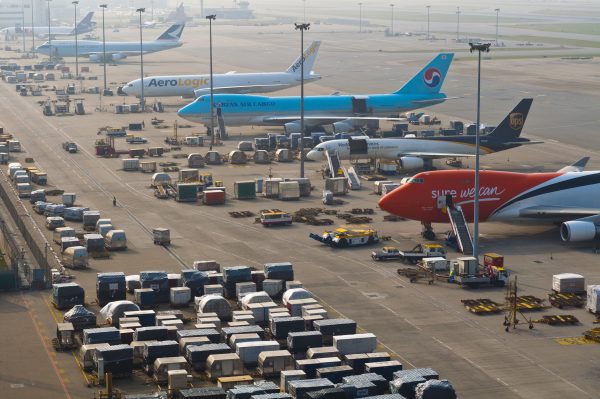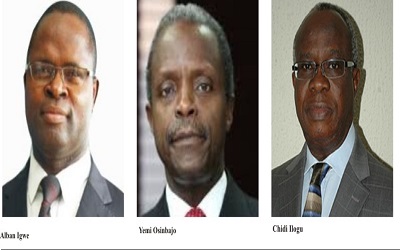Air Freight: The Need For Digitalization
Air freight is a key enabler of cross border trade which becomes especially critical for express deliveries, long-distance and efficient transportation of sensitive and critical goods.
The air cargo industry has been slow to embrace digitization. While passenger airlines offer a diversity of booking channels, enable transparent product comparison and shopping experience and have all adopted electronic tickets, air freighters still predominantly rely on numerous paper documents for their shipments.
Furthermore, the industry still relies on paper-based processes to exchange shipment information along the complex supply chain. This lack of data integration and standardization is prone to poor data quality and error mistakes, limits the end-to-end visibility and anticipation along the shipment journey, thus exposing to any unexpected event and bringing inefficiencies to the supply chain.
Digitization is seen as a key lever for the development of new innovative services and solutions which will drive efficiency in the air cargo system and deliver more value to the end customers.
However, with several numerous paper documents along the value chain that sometimes leads to inaccuracies, losses and misunderstandings at transcription, the International Air Transport Association (IATA) initiated two major projects to streamline the communication process along the air cargo journey which are the e-Air Waybill (e-AWB) and e-Freight.
An air waybill is the contract of carriage between the shipper (direct or freight forwarder) and the airline, with one copy that will always be attached to the consignment. E-AWB project aims at electronically standardizing air waybills. The expected benefits are many and encompass an increased accuracy, quality and reliability of data exchanges across airlines and shippers/forwarders, and reduced processing costs. This project is also expected to reduce cargo handling delays, ease security compliance and improve customer service. IATA is closely monitoring the e-AWB monthly performance of airports, airline companies and freight forwarders through e-AWB penetration with a target of 68% for December 2018 [5].
E-freight project has a broader aim as it consists in the development and implementation of end-to-end paperless transportation processes for air cargo, involving all the stakeholders across the value chain. This project is made possible through a regulatory framework, modern electronic messages and high quality of data. E-freight was initially kicked off in 2006 but a roadmap for paperless air cargo was created in 2013 to accelerate the industry’s adoption. More specifically, e-freight aims at removing customs, transport, commercial and special cargo documents.
To support e-Freight and e-AWB, IATA developed Cargo-XML messaging standards that enable electronic communication between airlines and other stakeholders of the value chain. There are now 12 messaging standards covering 20 documents.
While cargo ships are still viable options, buyers expect faster delivery times. As worldwide trade grows, the opportunity for air cargo carriers to transport more products will also increase. This shows that Paper documentation must be replaced much faster by electronic data exchange.
A former Director of International Air Transport Association (IATA), Tony Tyler also stresses the need for digitalization of airfreight. “Developments such as e-tickets, barcoded boarding passes, airport self-check-in kiosks, and in-flight Wi-Fi have transformed the passenger experience. Is it a coincidence that after a decade of change, load factors are at record highs and airlines are finally rewarding their investors with adequate returns? We need similar breakthroughs on the cargo side of the business” he said.
CEO and Director-General of the International Air Transport Association (IATA), Alexandre de Juniac while speaking at his group’s World Cargo Symposium in Singapore, last month, called on the global airfreight industry to accelerate the digitalization of day-to-day processes and to move away from a reliance on paper documentation and communications.
However, the air cargo industry still has a long way to go towards digitalization and the standardization of its business processes, particularly by upping the use of electronic air waybills (e-AWB). This will only work if all of the different industrial players come together and make digitalization part of their agenda.
Meanwhile, findings reveal that Nigeria’s air cargo industry is still yet to also adopt digitalization in its transactions.
The electronic airway bill program, launched in 2007, followed the broad strokes of IATA’s “e-freight” initiative, to replace paper with the digital exchange of data and messages between freight forwarders and airlines. As of January 2019, 60.2 percent of the transactions were conducted electronically, according to IATA data. That is an eight percentage point increase over February 2018 levels. Perhaps more important, the volume of digital transactions climbed to more than 907,000 in January from 723,000 13 months ago. Yet it should be noted that in mid-2013, IATA said it hoped to be at 100 percent digital penetration by the end of 2015.
If digitalization is utilized by Nigeria’s air cargo industry, it will provide opportunities for more innovation, increase profits, and create a modern industry. Similarly, going paperless would also save time, money, and space.
Speaking on the standard of air freight in the country, a major consultant in aviation, Chris Aligbe stressed that air cargoes do not take a long time to reach their final destination.
“Aviation is global. Whatever happens in one place goes to the other. If there is a particular system operating in UK, it should operate in other countries too. However, I don’t think we have any delays in the movement of air cargo in the country. I got some shipments recently and before the cargo arrived, the papers were here. They started the clearing immediately and I got my goods in 3 days. Except someone in the supply chain have not met the required conditions, then there wouldn’t be delays” he opined.
However, The Director General of African Centre for Supply Chain, Dr Obiora Madu disclosed that prompt delivery air cargo in Nigeria is greatly affected by corruption adding that most people will not want the delays to be eradicated as a result of the monetary gains they benefit from it.
His words: “Generally, our clearing process both at the sea and the airport is not as fast as it is in other countries whose economy falls in the same category with our own. Right now, people are thinking of paperless transaction. Another thing that also causes delay is too much digression as far as Customs officers are concerned. Even if your goods have met the requirement, if a Customs officer says it has not been cleared, then it is not cleared”.
“In other countries, you can find the duty for a particular type of car on a website. The rates charged by the shipping companies would be displayed. In Nigeria, these things are not in place and these are the thing that encourages corruption and causes delay. The world is moving fast in trade facilitation and so if digitalization is embraced, corruption and delays would be eradicated” he stressed.
Madu noted that the e-freight system can work in the country’s air cargo sector if corruption is tackled. “If the system doesn’t work, then it is a cultural thing. If e-freight will be used, it will stop a lot of things. So many people in the supply chain make a lot of money from these delays. Government also has a role to play in ensuring that the initiative works in the air cargo industry. We have to put it in our plan and make it happen. Anybody who wants to ruin the plan will be cleared off and that is the only way we can facilitate the use of digitalization”.







